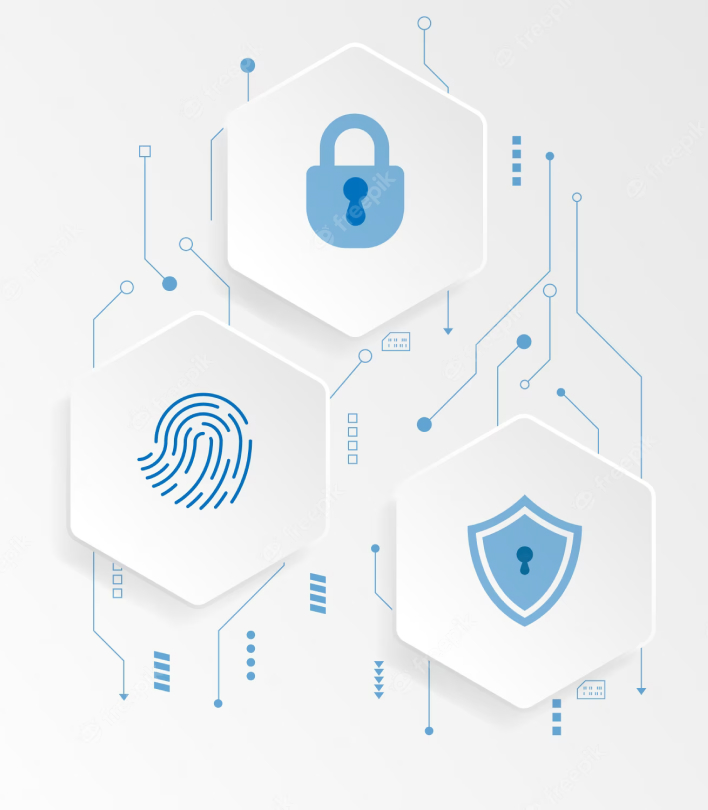Ransomware and IR
Readiness
Ransomware Readiness
Ransomware readiness is on the rise in today’s digital landscape due to the increasing prevalence and sophistication of ransomware attacks. That’s why companies should consider beefing up their ransomware readiness: Here are some benefits of having a robust Ransomware readiness state
Mitigating Financial Loss
Ransomware attacks can result in substantial financial losses for organizations. By being prepared and implementing effective ransomware readiness measures, organizations can minimize the potential impact of an attack and avoid paying hefty ransom demands.
Protecting Data and Intellectual Property
Ransomware attacks can lead to the encryption or theft of sensitive data and intellectual property. Being prepared helps organizations implement robust security controls, backup strategies, and incident response plans to protect valuable assets from being compromised or permanently lost.
Maintaining Business Continuity
Data breaches and mishandling of customer data can severely damage an organization’s reputation and erode customer trust. Data protection measures demonstrate a commitment to safeguarding customer information, strengthening customer confidence, and enhancing brand reputation.

Ransomware Readiness is essential for mitigating financial loss, protecting data and intellectual property, maintaining business continuity, safeguarding customer trust, complying with regulations, proactive risk management, employee awareness and training, collaboration, and proactive incident response. By prioritizing ransomware readiness, organizations can enhance their resilience against ransomware attacks and minimize the potential impact on their operations, reputation, and stakeholders.


Unveiling Distinctiveness
Abira’s Ransomware Readiness service possesses several key characteristics that distinguish it from others. Here are some factors that differentiate our service in the market
Comprehensive Assessment
Abira’s Ransomware Readiness service starts with a comprehensive assessment of an organization’s existing security measures, vulnerabilities, and potential attack vectors. This assessment helps identify gaps and weaknesses that need to be addressed to improve ransomware readiness.
Risk Analysis and Mitigation
Our team conducts a thorough risk analysis to identify critical assets, potential impacts of ransomware attacks, and the likelihood of occurrence. Based on this analysis, we provide tailored recommendations and mitigation strategies to minimize the risks and strengthen the organization’s resilience against ransomware.
Security Controls and Technologies
Our team assist organizations in implementing robust security controls and technologies that help prevent, detect, and respond to ransomware attacks. This may include network segmentation, access controls, endpoint protection, encryption, intrusion detection systems, and security information and event management (SIEM) solutions.
Here are some key aspects of
an incident response tabletop exercise

Scenario Development
The scenario for the tabletop exercise should be designed to simulate a realistic cybersecurity incident that could impact the organization. The scenario should be detailed enough to provide a realistic test of the incident response plan.

Participant Selection
The participants for the tabletop exercise should be selected based on their roles and responsibilities in the incident response plan. This includes members of the incident response team, key stakeholders, and external partners.

Exercise Execution
During the exercise, the participants work through the scenario, identifying and responding to the various stages of the incident. The exercise should be structured to include debriefings and feedback sessions to identify areas for improvement.

Objective Evaluation
The tabletop exercise should be evaluated against pre-defined objectives to measure the effectiveness of the incident response plan. This includes assessing the organization’s ability to detect, respond, and contain the incident, as well as its ability to communicate with key stakeholders.

Lessons Learned
After the exercise, a lessons learned session should be conducted to identify areas for improvement and update the incident response plan accordingly. This includes identifying areas where additional training or resources may be needed to improve the organization’s readiness for a cybersecurity incident.
Elevating Incident
Response Preparedness
Abira’s Incident Response Tabletop exercise service is one that helps organizations effectively test their incident response plans and improve their overall cybersecurity posture. Here are some key elements that make our service stand out in the market.
Abira Security provides a comprehensive and realistic test of an organization’s incident response capabilities and offer practical advice and support to help the organization improve its overall cybersecurity posture.
Experienced Facilitators
Our team consists of experienced facilitators who can guide the participants through the scenario, providing guidance and feedback throughout the exercise. We have a deep understanding of incident response best practices and be able to offer practical advice to help the organization improve its response capabilities.
Realistic Simulation
Our team creates a realistic simulation of a cybersecurity incident that involves a variety of scenarios, including malware attacks, data breaches, and denial-of-service attacks. The simulation is designed to mimic real-world scenarios, including the use of social engineering tactics and the involvement of multiple parties.
Follow-Up Support
We also provide follow-up support to help the organization implement improvements identified during the exercise. This includes providing training and guidance to improve incident response capabilities, as well as ongoing support to ensure that the organization remains prepared for future incidents.
Comprehensive Evaluation
Abira provides a comprehensive evaluation of the organization’s response capabilities, including the identification of strengths and weaknesses in the incident response plan, the effectiveness of the incident response team, and the organization’s ability to communicate with stakeholders.
Customized Scenarios
Abira provides customized scenarios tailored to the specific needs and risks of the organization. The scenarios are realistic and designed to challenge the incident response team, ensuring that the exercise provides a meaningful test of the organization’s readiness.